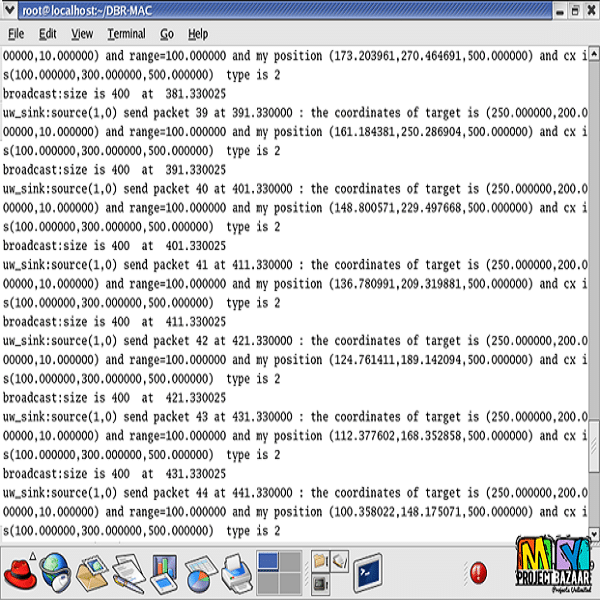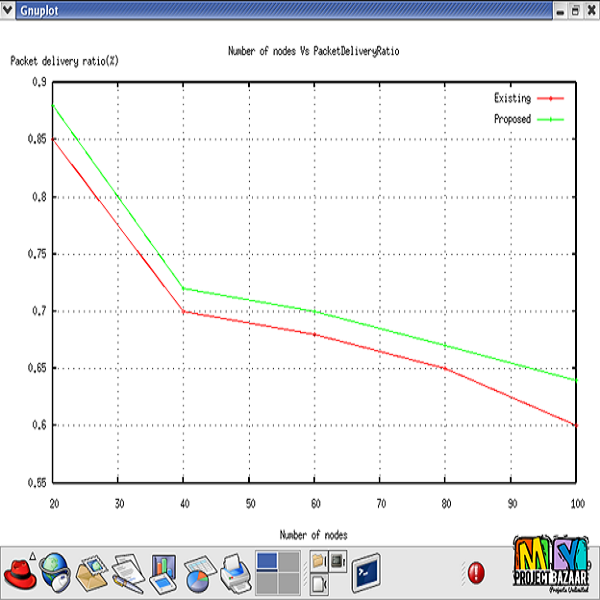Balanced Energy Consumption Based Adaptive Routing for IoT Enabling Underwater WSNs
Product Description
Balanced Energy Consumption Based Adaptive
Routing for IoT Enabling Underwater WSNs
Abstract-Applications of Internet of Things underwater wireless sensor networks, such as imaging underwater life, environmental monitoring, and supervising geological processes on the ocean floor, demand a prolonged network lifetime. However, these networks face many challenges, such as high path loss, limited available bandwidth, limited battery power, and high attenuation. For a longer network lifetime, both balanced and efficient energy consumption are equally important. In this paper, we propose a new routing protocol, called balanced energy adaptive routing (BEAR), to prolong the lifetime of UWSNs. The proposed BEAR protocol operates in three phases: 1) initialization phase; 2) tree construction phase; and 3) data transmission phase. In the initialization phase, all nodes share information related to their residual energy level and location. In the tree construction phase, our proposed BEAR exploits the location information for: a) selecting neighbour nodes and b) choosing the facilitating and successor nodes based on the value of cost function. The results of our extensive simulations show that BEAR outperforms its counterpart protocols in terms of network lifetime.
Including Packages
Our Specialization
Support Service
Statistical Report

satisfied customers
3,589
Freelance projects
983
sales on Site
11,021
developers
175+
















